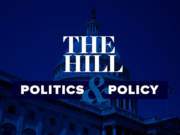This piece originally appeared in the Post Bulletin on June 8, 2023.
On April 26, the Minnesota Senate passed the “Democracy for the People Act” by a single vote, and, earlier this month, Gov. Tim Walz signed the bill into law. While the legislation mainly covers voting registration and absentee ballots, buried at the end is an attack on First Amendment freedoms — the foundation of our democracy.
Specifically, this legislation dramatically limits the ability of many companies to speak on topics of public concern. It strips the rights of any so-called “foreign-influenced” company to speak in support or opposition to candidates for election or ballot questions.
The standard for what makes a company “foreign-influenced” is laughably low and often practically impossible to determine. If a single foreign investor owns just 1% of a company’s shares, that makes a company “foreign-influenced,” and it loses speaking rights. Additionally, if multiple foreign owners in aggregate have shares that total 5% of a company’s shares, then that qualifies the company as “foreign-influenced.”
Publicly traded companies are under even more pressure. The Act requires that companies certify under penalty of perjury that they are not “foreign-influenced” as of the date of the speech or contribution to another speaker. Yet, in the international market, people are constantly trading worldwide. Companies cannot be expected to assemble this vast jigsaw every time they wish to speak on a public issue. Rather than risk a perjury charge, most companies will stay silent, which is likely the legislation’s intended effect.
This legislation doesn’t just hurt large corporations. Imagine that a person owns a small restaurant in Rochester that they started with some small seed money from their overseas parents. The legislation classifies a foreign investor as anyone who has an ownership stake in the company who is not a citizen or a lawful permanent resident. So, the tiny restaurant would lose their ability to speak about candidates or ballot issues that directly affect small businesses.
Someone owning just 1% of a company doesn’t command significant influence. And, in our globalized world, it is unreasonable to expect corporations to be nearly free of foreign investment. A more reasonable standard would be to limit the speech of foreign-controlled corporations where foreign investment owns most of a company’s shares.
Stopping a company from engaging with public issues is fundamentally anti-democratic. Imagine that 3M or Target has a foreign investor from Canada who owns 1% of the company. Under this legislation, the state would prevent these companies from speaking. If a legislator proposed a burdensome sales tax, it would be illegal for Target to oppose their reelection. And if Target wanted to support its LGBTQ employees by supporting a ballot question that would deter discrimination, that support would be illegal.
Supreme Court precedents have upheld the rights of corporations and unions to speak on candidates and ballot measures. This legislation is essentially trying an end run around these clear precedents by using the boogeyman of “foreign influence” to strip many companies in Minnesota of their ability to speak.
Some groups supporting the law don’t even try to hide that its “foreign controlled” provisions aim at pushing corporate spending out. One such group celebrates that the bill “Limits corporate spending in elections.” The organization likely doesn’t mention foreign-influenced companies because, under the terms of the legislation, many companies could qualify as “foreign-influenced.”
Even if you agree with other aspects of the law, that doesn’t mean we should take one step forward in some areas and two steps back for free speech. We should all worry about its speech-stifling elements. Whatever virtues exist in the rest of the law in no way justify appalling, unconstitutional provisions that remove important speech from the public sphere.
The law seems destined to face a First Amendment challenge that state officials are unlikely to win. Ironically, striking down portions of this “Pro-Democracy” legislation will actually be good for both democracy and free speech.
True progress in election reform does not, and cannot, come at the expense of free speech.














